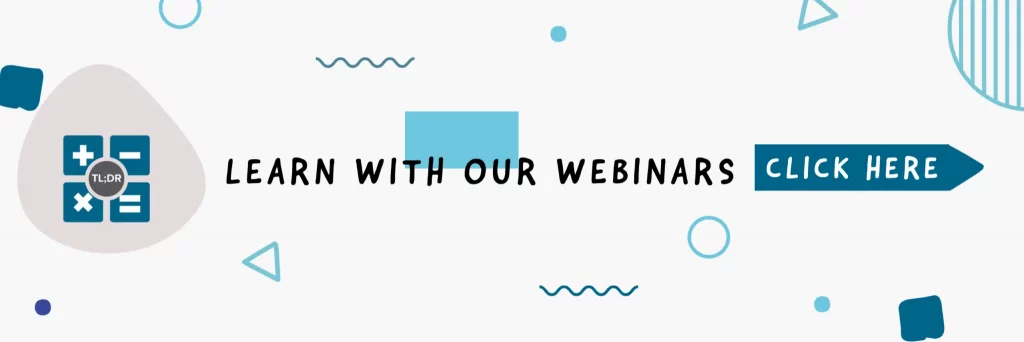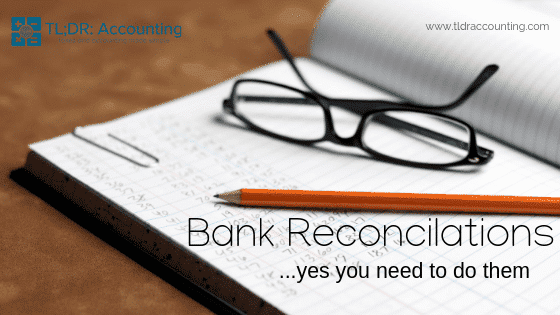If you’ve ever seen someone tearing their hair over a reconciliation that just won’t balance, maybe you’ve wondered what the fuss is all about. Why are reconciliations, or “recs” or “recons” as you may have heard, so important?
For the purposes of this post, we’re going to focus specifically on Quickbooks Online.
Bank Transaction Imports
Let’s lead in with something very important that bears repeating. If you are the person who imports online banking transactions into your software, then:
Pay careful attention to what you’re doing during the bank transaction import.
The bank transaction import is the first step of your bank reconciliation. If you can ensure that everything goes to the right place on the way into your books, then the reconciliation will go much easier.
Here’s a tutorial on bank transaction imports for Quickbooks Online.
Abe Lincoln once said, “Give me six hours to chop down a tree and I will spend the first four sharpening the axe.” Doing a careful, proper bank transaction import is similar — if you’re cautious enough then you’ll often spend a lot more time on the transaction import than the reconciliation itself!
Watch Out For Uncategorized Income!
One of the most important things to look out for during a bank transaction import is to make sure that you’re not importing anything to “Uncategorized Income” unless you really mean to. Assigning items to Uncategorized Income often results in your QBO bank deposits not matching properly to the bank import.
If You Receive Checks, Use Undeposited Funds
As a bit of an aside, if you receive physical checks from customers then it’s best to receive them to Undeposited Funds in the Receive Payments screen. Then, deposit all of them together with a Bank Deposit from the “+” icon. You can think of Undeposited Funds as the virtual equivalent of your zip-up bank deposit baggie.
If you don’t do this, then your books and the bank might match in dollar amount but not in the number of transactions. For example, your Quickbooks might have three $100 deposits while your bank statement shows one $300 deposit.
The Reconciliation Itself
So you’ve spent a whole month carefully importing your online bank transactions (you do reconcile monthly, right?) and now it’s time to seal the deal. It’s time to click on that gear icon and begin your reconciliation! Here’s a tutorial on how to reconcile your bank account.
Finding the Leftovers
Reconciling is all about finding the leftovers. You start off by eliminating all the transactions that your QBO books and the bank agree on: this is probably the bulk of the month’s activity and would include most of your checks and deposits, and almost all of your electronic funds transfers.
But the real point of reconciling is to find the leftovers and examine them! What are the transactions that haven’t cleared, and why haven’t they cleared?
Common types of leftovers and examples:
Items that appear in your Quickbooks but won’t appear in the bank statement:
- Checks recorded in QBO that haven’t cleared the bank
- Example: You handed Employee Ned a check on the 5th of last month, but he left it in his glove compartment. Maybe it’s time to consider direct deposit, if only for his sake!
- Deposits in-transit
- Example: Your customer initiated an electronic funds transfer to you on the 31st and you booked it in Quickbooks, but it hadn’t hit the bank account by month-end.
- Bank errors — in my experience this is rare, but it can happen
- Example: The bank employee depositing a check transposed some numbers and accidentally deposited a $565 check as a $656 check.
Items that appear in the bank statement but that might not be in your books yet:
- Errors on your company’s books — it happens to the best of us!
- Example: Employee Ned asked for a payroll advance at the end of the day, so you pulled a check and hand-wrote it to him, but you forgot to book it in Quickbooks. Maybe he asked for the advance because he left that paycheck in his glovebox! (For the record, we recommend against handwriting checks unless that is your normal way of operating.)
- Bank fees, penalties, service charges, etc.
- However you like to call it, many banks like to nickle-and-dime you. Depending on how closely you’re watching your bank accounts, you might not notice these fees until you see the bank statement.
Examining the Leftovers
There are two parts to examining your leftovers:
- First, think about the whys of this leftover. Why did it happen? It’s not always a bad thing to have a leftover, but sometimes it’s the result of an inefficiency that can cost you time or money.
- Second, think about the hows — how will you get your books to match the bank statement? Unless there’s a bank error, you want your QBO bank account to be a mirror image of the bank statement.
Tying It All Together — Why Is It Important to Reconcile?
Okay, time to wrap all of this up. Why is it important to reconcile?
If your bank account is not reconciled, then it’s possible that your business has less cash than you think. When it comes to payroll or payables, you may end up committing to spending more money than you have available and landing in overdraft territory.
Reconciliation is one of many error-checking processes that you can use to make sure your books are squeaky-clean. An error discovered during a bank reconciliation can lead to finding other errors. For example, accidental duplicate invoices could mislead you into thinking that your business is more profitable than it actually is!
TL;DR: Yes, you need to be reconciling your books. If this isn’t your jam we can do it for you, or we can show you how in a training session.






